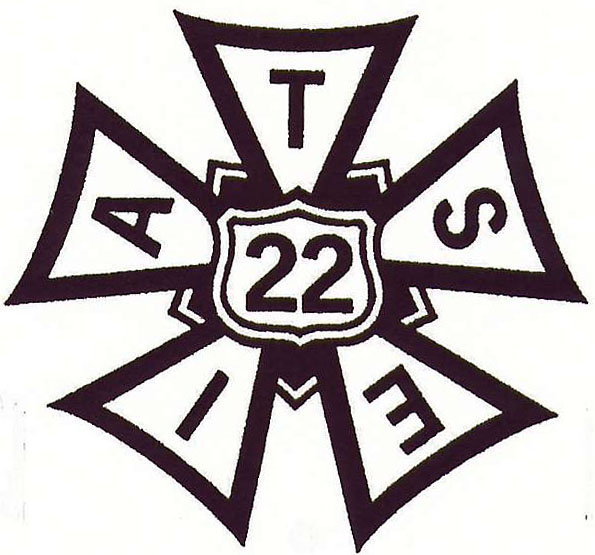 "Employees shall have the right to self-organization, to form, join or assist labor organizations, to bargain collectively through representatives of their own choosing, and to engage in other concerted activities for the purpose of collective bargaining or other mutual aid or protection..."
"Employees shall have the right to self-organization, to form, join or assist labor organizations, to bargain collectively through representatives of their own choosing, and to engage in other concerted activities for the purpose of collective bargaining or other mutual aid or protection..."
………Section 7 of the National Labor Relations ActA union is simply a majority of employees who join
together to better their work lives.
With a union, you have the legal right to bargain over your pay,
benefits, employment security, health and safety, retirement,
and other concerns you have in your job.
Local 22 has made a commitment to bring union representation
to all the people working in the technical side of the entertainment
industry in the greater Washington, DC area.
Local 22 can help you get the things you want from your job.
This is about you.
Acting together with your co workers you can make your job the best it can be.
To get a union started, the first thing you need to do is quietly talk to your co-workers.
Do they share the same concerns you have? Or, do they have other issues? Is there a
common theme to these concerns such as lack of respect and dignity; lack of a voice
in the workplace; unfair treatment; and/or wages and benefits lower than other people
working in the same industry?
Our experience tells us that it's best when workers organize themselves if they are to
create a viable organization in their workplace. IATSE organizers and staff will help.
After talking with your co-workers to find out their issues, you should contact IATSE
Local 22 to talk with a union organizer. He or she will set up a meeting with you and
some of your co-workers. Together, you will create a plan for a organizing a union in
your workplace. Click here to contact Local 22.
- A Typical Organizing Campaign
The campaign will consist of talking with co-workers about the union, asking them to
sign a petition of support. When there is a majority of support (Over 50% of employees
have signed the petition of support), the union will file for an election with the National
Labor Relations Board (NLRB). Usually, the NLRB will then meet with the union and
the employer to establish the criteria for employees who will be eligible to vote in the
union election. The NLRB sets a date for a secret ballot election.
Under Section 7 of the NLRA, you have the legal right to:
- Attend meetings to discuss joining a union.
- Read, distribute, and discuss union literature (as long as you do this in non-work areas during non-work times, such as during breaks or lunch hours).
- Wear union buttons, t-shirts, stickers, hats, or other items on the job.
- Sign a card asking your employer to recognize and bargain with the union.
- Sign petitions or file grievances related to wages, hours, working conditions,
and other job issues.
- Ask other employees to support the union, to sign union cards or petitions, or to
file grievances.
After the union's election victory is officially certified by the NLRB, your employer is
legally required to negotiate in "good faith" with the union on a written contract
covering wages, hours, and other working conditions. At this point, the IATSE
business agent and staff will consult with you and your co-workers about what is
important for you to gain in a collective bargaining agreement and what you are willing
to bend on. Negotiating is a give-and-take process. However, the IATSE will always
take the primary interest of the employees first.
What Your Employer May Not Do During an Organizing Drive
Under Section 8(a) of the National Labor Relations Act, there are a number of actions
that your employer and/or supervisors may not engage in, which constitute unfair labor
practices (ULPs). These restrictions on the employer’s conduct are designed to protect and preserve your right to join a union under Section 7.
Section 8(a)(1) of the NLRA states that the employer may not:
“Interfere with, restrain, or coerce employees in the exercise of the rights guaranteed
under Section 7.”
Examples of 8(a)(1) violations include:
- Threatening to fire for union or concerted activity.
- Threatening to demote, reprimand, or punish in any way because of union
activity.
- Conducting anti-union interrogations.
- Threatening to close or move the shop to escape the union.
- Threatening loss of benefits if the employees vote for the union.
- Promising benefits to employees in return for anti-union activities.
- Interfering with communication among employees or with attempts to
organize by such means as unduly restrictive solicitation rules.
- Spying on union meetings.
- Granting benefits or wage increases timed to defeat union organization.
- Refusing to bargain in good faith with the union, once the union wins the
election.
If you believe that your employer has committed any of these unfair labor
practices, please contact us immediately.
 "Employees shall have the right to self-organization, to form, join or assist labor organizations, to bargain collectively through representatives of their own choosing, and to engage in other concerted activities for the purpose of collective bargaining or other mutual aid or protection..."
"Employees shall have the right to self-organization, to form, join or assist labor organizations, to bargain collectively through representatives of their own choosing, and to engage in other concerted activities for the purpose of collective bargaining or other mutual aid or protection..."
